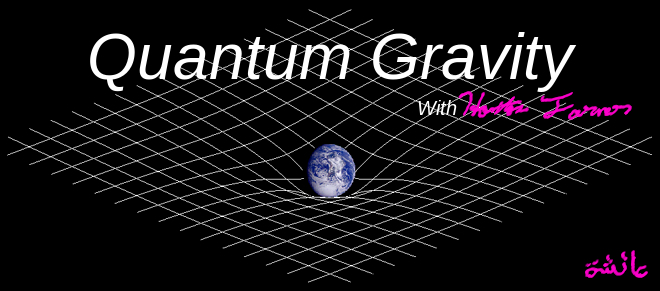Open Access Post Publication Peer Review as done on the Winnower is a bold experiment which my new model for reconciling General Relativity and Quantum Field Theory has tested. The model I propose is simply a conceptual inversion. Instead of making General Relativity into a QFT by some means, instead we can attempt to make QFT even more relativistic than it already is. (Since QFT is a result of formulating quantum mechanics so that it obeys Special Relativity) This idea like every new idea meets with a deal of healthy skepticism. Even I am skeptical of it, out of five stars I'd give it at most three. Never the less the reviewers don't seem to get what the purpose of reviews on a platform such as TheWinnower or anything similar to it, like say ScienceOpen Research, is. They are reviewing a product, just because of bad initial reviews the product does not vanish.
The Fundamentals of Relativization.
A paper where I extend, clarify, correct, and expand on the ideas presented earlier has been finalized. Hontas Farmer, Fundamentals of Relativization, The Winnower 1:e141487.76774 (2014). DOI: 10.15200/winn.141487.76774
I reserve the right to request that direct discussions of the paper occur with the paper(s) on TheWinnower. The Reviews are part of the record of the research. I could write about it some more, instead I have created the following PowerPoint where I summarize the ideas.
Right now the paper has one star, I'd give it 2.5 to three myself.
I think overall the reviews have been fair but that the reviewers don't seem to get the point of reviewing on a platform like TheWinnower. Reviews are intended to express a point of view on the work, ways to improve the work, or ways that the work may just be wrong. Then the author has to respond. I have responded with a new paper. Then I modified my paper in response to all nine reviews. Now if the reviewers don't feel that I have convinced them well...this isn't a PhD committee we are equals discussing ideas among equals. They and every reader has a right to personally dismiss my ideas, however nothing gives them the right to suppress them and keep them from general circulation.
Lets consider the ideas in circulation. There is an article on this websites news feed about M-Theory re positioning itself as now being more fundamental than quantum mechanics. That's ok, but my different thinking gets attacked by some. Why? There is no logical reason for it! Even if someone thinks I am wrong why get personal?
As I tell my science students a theory that is 100 years old without serious modifications is more than likely correct, a theory, any theory which is less than 10 years old is more than likely wrong, between those extremes it's a crapshoot. I know my theory could be wrong, so could any new theory. That's why theorist tend to have more than one. (I even have a dusty totally different model of quantum gravity in the bank, Quantum Space-Time Dynamics. )
All in all I would say that Open Access Post Publication Peer Review can work as long as the authors have a strong stomach for a degree anonymous trolling, welcome serious discussions, and are willing to be publicly wrong and publicly corrected. Likewise, those who review papers need to accept that what they do there is more like a book review or movie review. No matter how long their bad review is the paper under review will not simply go away. Just as with movies. Movies that review badly or which don't do well on opening night can be classics in the long run. The same can and has been true with journal papers which are sometimes ignored at publication only to be highly cited a decade or two latter.
Part of the resistance to OAPPPR is that somewhere along the line publishing a paper became like awarding a credential, instead of a way of communicating data and ideas and nothing more.
One more thing. I also have a paper on massive star formation which has been in press for a year. It will be published in IJAA this December.
The Fundamentals of Relativization, and The Purpose of Peer Review After Publication.
Related articles
- No Sign of Quantum Space-Time Foam from Quasar Light.
- Without Wormholes: A Solution to Entanglements Theoretical Problems.
- A Simple Calculation That Shows Black Hole Firewalls Exist and How Hot They Are.
- Publishing in scientific journals cost MONEY!? A kickstarter project.
- Presenting A Hypothesis Of Everything, And Finding Out A Giant Had A Similar Idea At The Same Time Is Great.




Comments